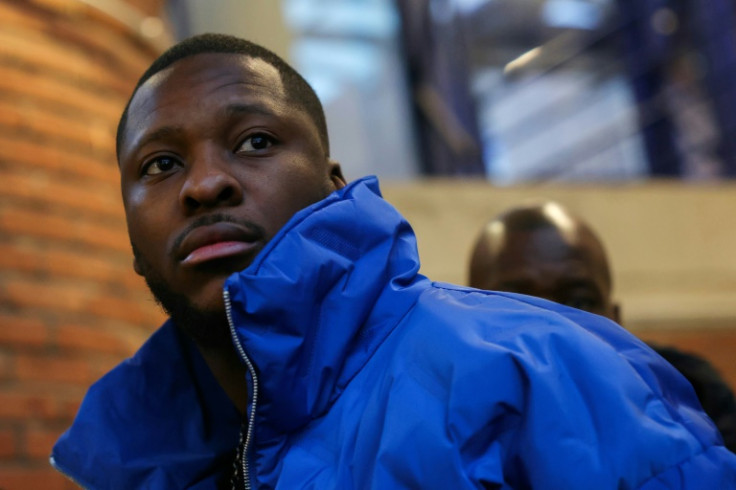French Officers Get Suspended Jail Terms In Police Brutality Case

A French court on Friday gave suspended jail sentences to three officers in a rare case of police brutality coming to court, after a black man suffered irreversible rectal injuries.
Some activists said the policemen had got away with a mere slap on the wrist.
Theo Luhaka was left disabled after suffering severe anal injuries from a police baton, as well as wounds to his head and face, during a stop-and-search in the Paris suburb of Aulnay-sous-Bois in 2017.
Marc-Antoine Castelain, 34, who was found guilty of the truncheon blow that injured Luhaka, received a 12-month suspended prison sentence.
His colleagues Jeremie Dulin, 42, and Tony Hochart, 31, received three-month suspended terms at the end of the trial that started on January 9.
Prosecutors had asked for a three-year jail term for Castelain for dealing the blow and six and three months for Dulin and Hochart respectively for taking part in the assault.
Castelain's blow ripped the muscle surrounding Luhaka's anus, leaving a wound 10 centimetres (four inches) deep.
The courtroom was packed with Luhaka's supporters and plainclothes police officers, and the atmosphere was tense.
After the sentencing, Luhaka was greeted with a round of applause.
Activists held up posters showing the faces of people who had died as a result of police violence.
The court rejected the charge of "deliberate violence resulting in permanent mutilation or infirmity".
Luhaka, now 29, has said he once dreamt of being a "great footballer" but now suffered from incontinence and spent most of his time in his room watching US detective series "Monk" on repeat.
He has become a symbol of rough tactics that police are accused of using in the high-rise housing estates that ring the French capital.
"It is a decision of appeasement that we take as a victory", said Luhaka's lawyer Antoine Vey, referring to the ruling.
Others said the policemen had got away with a mere slap on the wrist.
"The message sent to the police is: 'You can mutilate, kill. You'll get a reprieve'," said activist Amal Bentounsi.
Castelain's lawyer welcomed the ruling.
"It's a huge relief," said Thibault de Montbrial.
"For the first time in the eyes of the whole of France, it has been established, as he has said from day one, that he is not a criminal," he said of his client.
This was a rare case of police brutality to be tried in a court instead of at an internal disciplinary hearing.
Luhaka initially accused Castelain of raping him with a baton -- an accusation the officer denied, saying he had aimed his baton at Luhaka's legs.
Prosecutors said there was not enough evidence to support the rape charge.
"I felt like I was raped," Luhaka told the court on Monday.
The IPGN police watchdog concluded before the trial began that there had been a "disproportionate use of force" and that the baton blows were inflicted at a time when "Luhaka was not attacking the physical integrity of the police officers".
Castelain said his baton blow was "legitimate" and had been "taught at the police academy".
The other officers kneed, punched and aimed pepper spray at Luhaka while he was handcuffed and on the ground.
Dulin admitted to the court that one of the blows was undue. He claimed he did not mean to use the pepper spray.
Hochart said he only dealt Lusaka a "light" punch in the stomach "to wind him".
The case blew up in the media after security camera footage of the incident was shared online.
President Francois Hollande, who was in office at the time, visited Luhaka in hospital.
Activists have repeatedly accused French police of brutality and racism.
Last June, a police officer shot Nahel, a 17-year-old Frenchman of North African origin, during a traffic stop in the Paris suburb of Nanterre. The killing sparked over a week of nationwide rioting.
In September 2023, lawyers said investigating magistrates had dropped a case against three gendarmes over the 2016 death in custody of 24-year-old black man Adama Traore.

© Copyright AFP 2024. All rights reserved.





















